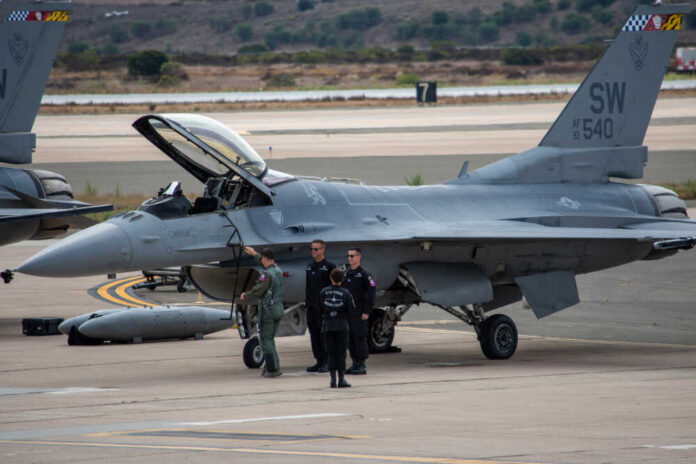
Military pilots and ground crew members are reportedly facing high cancer rates, as revealed by the Pentagon’s latest research findings.
A study conducted by the Department of Defense (DOD) concluded that people who either flew in or worked on U.S. military aircraft are facing notably higher rates of cancer as compared to the average American. The findings came from an analysis of almost 900,000 service members who had been involved in flying, operating, or working on U.S. military aircraft from 1992 to 2017.
In its yearlong study of almost 900,000 service members who flew on or worked on military aircraft between 1992 and 2017, the Pentagon found that air crew members had an 87% higher rate of melanoma and a 39% higher rate of thyroid cancer.https://t.co/6KcRFt5lPc
— Stars and Stripes (@starsandstripes) March 19, 2023
The report stated that aircrew service members who would fly on military aircraft had an 87% higher rate of coming down with melanoma and a 39% higher rate of being afflicted with thyroid cancer. It also noted that women who served in American skies were found to have a 16% higher risk of getting breast cancer, while men in the same category had a 16% higher rate of being diagnosed with prostate cancer.
Sen. Jon Tester (D-MT) expressed public concern over the revelations in a recent post he made to Twitter summarizing a meeting he says took place at the Pentagon with the Air Force’s top military official. Tester claimed that he urged the official to provide answers surrounding the “concerning reports of cancer rates among Missileers at Malmstrom AFB in Great Falls, Montana. ”
Update: I went to the Pentagon this morning to meet with the Air Force's top military official and push for answers about the concerning reports of cancer rates among Missileers at Malmstrom AFB in Great Falls, Montana. I'll keep pushing Air Force leadership to address this ASAP. pic.twitter.com/pjHf5E2O9B
— Senator Jon Tester (@SenatorTester) January 26, 2023
The DOD’s research said the findings and results of the study “does not imply that military service in air crew or ground crew occupations causes cancer, because there are multiple potential confounding factors that could not be controlled for in this analysis.” Other external factors the report claims that could be contributing to the increased cancer risk include drinking alcohol, smoking, and family genetics.
Also discovered in the study was that aviation crew members were more likely to live through cancer than the average population in spite of the heightened risk, potentially due to their regular medical appointments and ostensibly better physical fitness.
Military aviation crews have for a long time pleaded with the Pentagon to thoroughly investigate the potential harms they may be exposed to on the job, including jet fuels and solvents used to clean and maintain jet parts, sensors, and their power sources in aircraft nose cones, and massive radar systems, Associated Press reports.
One widow of a former Navy Captain, Betty Seaman, said to the Associated Press that her husband would come home after flying for the military in gear that “would reek of jet fuel.”
Her husband, Captain Jim Seaman, passed away in 2018 from lung cancer at the young age of 61 years old.










